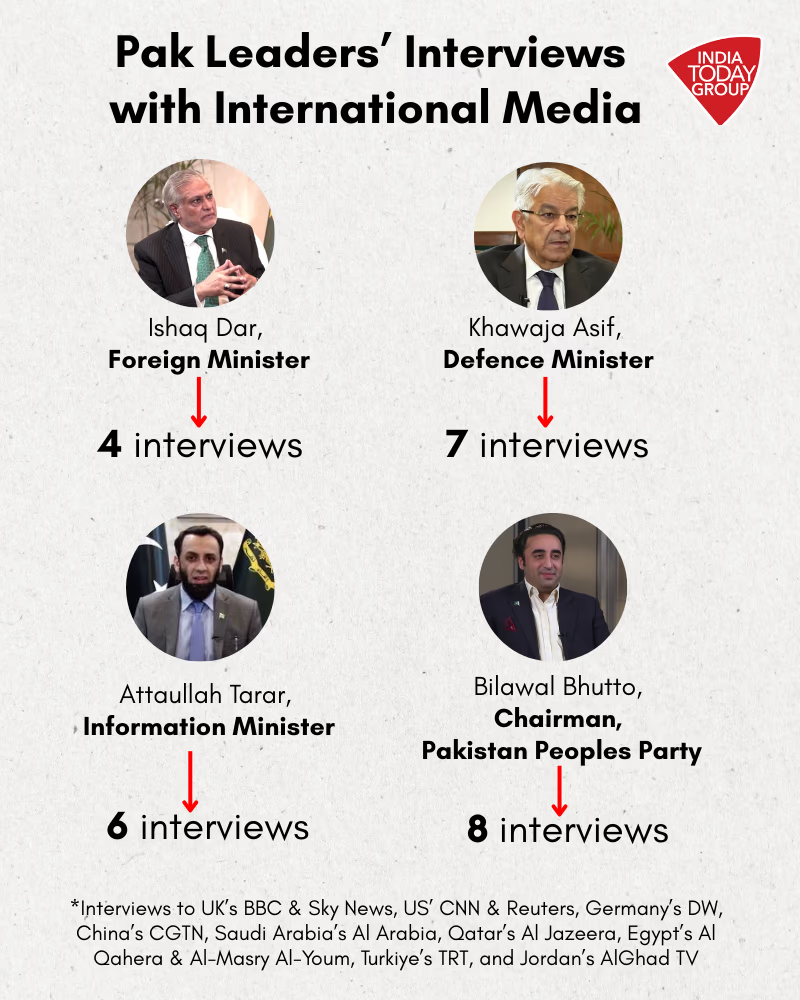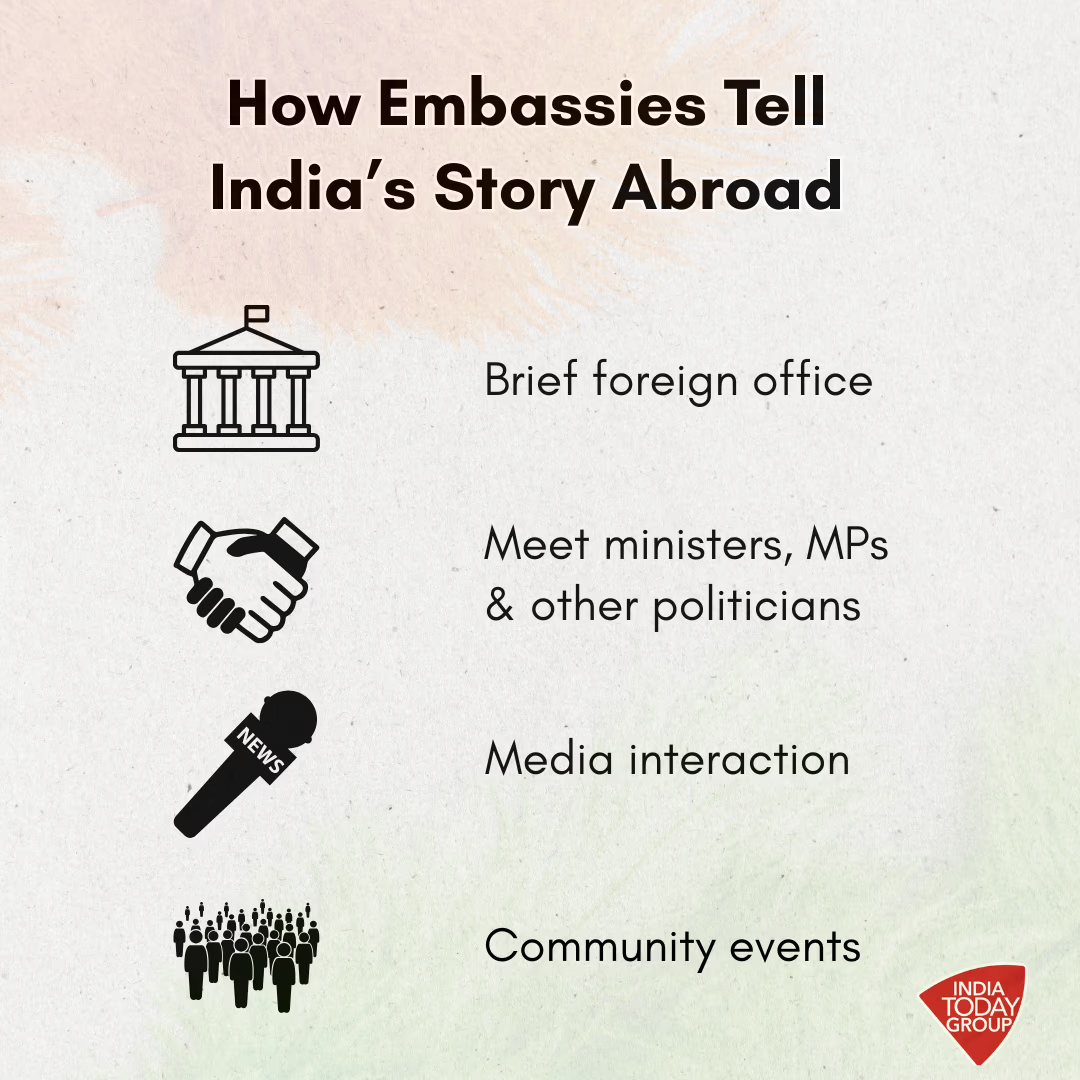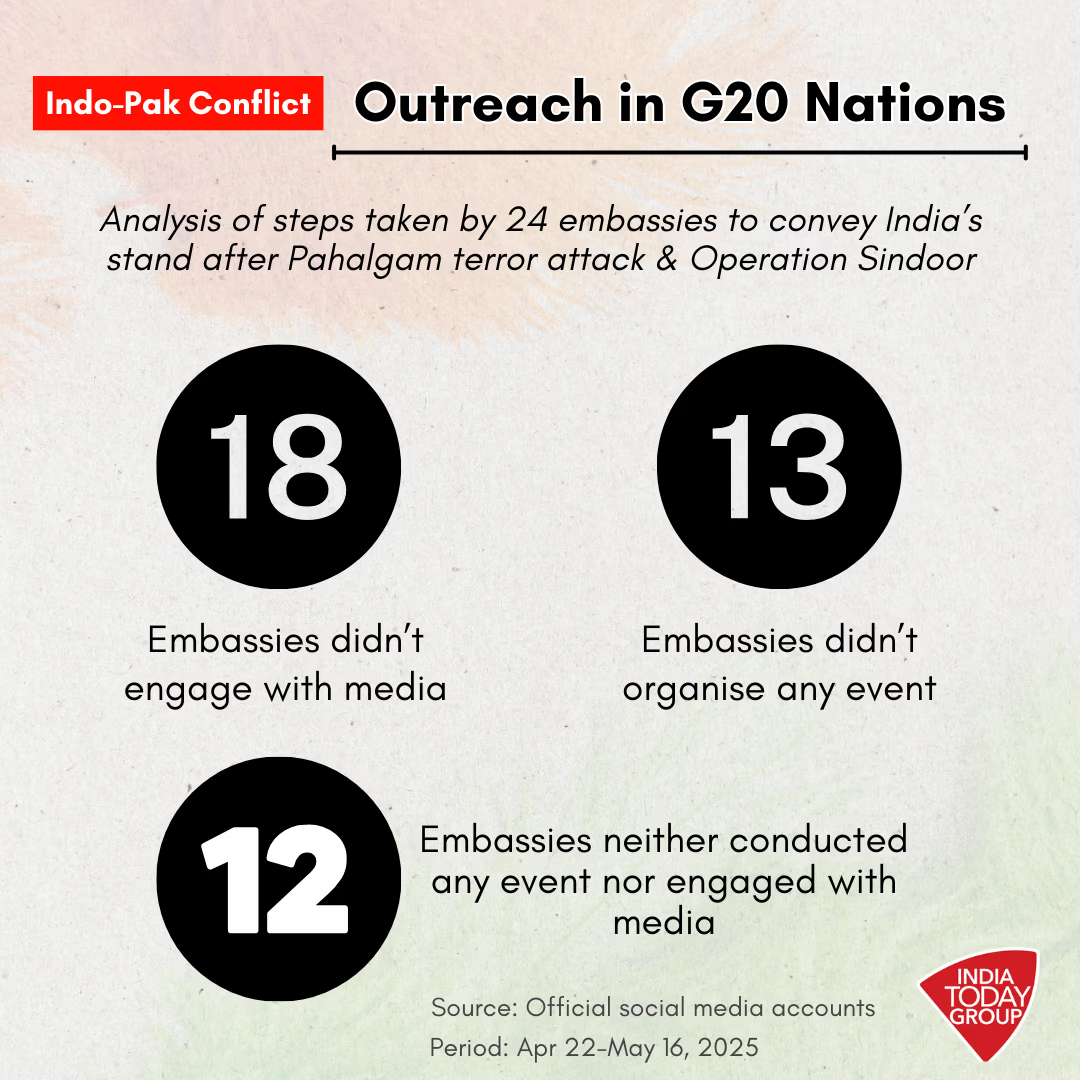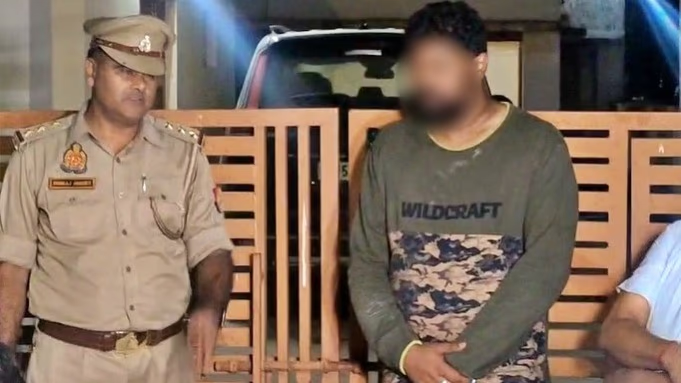Following the Pahalgam terrorist attack, Pakistan's top ministers and diplomats launched a strategic propaganda campaign. On foreign TV channels across the US, UK, Central Asia, and Europe, they claimed that the India-Pakistan issue centers on “Kashmir” rather than “terrorism.” Pakistan's three cabinet ministers, Ishaq Dar, Khawaja Asif, and Ata Ullah Tarrar, along with Pakistan People's Party President Bilawal Bhutto, collectively gave at least 25 interviews.
Despite this, the international community widely supported India after the Pahalgam attack. However, former diplomats believe the absence of Indian embassies and high commissions in foreign media from April 22 to May 7 allowed the Pakistani narrative to spread unchecked.

Source: aajtak
Also read:
Strategic affairs expert Brahma Chellani commented, “International media is now focusing on Kashmir as the core issue over cross-border terrorism.” Following the temporary halt of Operation Sindoor, India dispatched a multi-party delegation of 59 members to major world nations to address the longstanding problem of Pakistan-sponsored terrorism.
Former diplomats Rajeev Dogra and Anil Trigunayat feel India's communication strategy could have been more active and aggressive. The question remains, has India, especially its diplomats, effectively conveyed its stance to the world?
To find out, India Today's Open Source Intelligence (OSINT) team analyzed India's official X (formerly Twitter) accounts of embassies in G20 countries, representing approximately 85% of global GDP.
The Ministry of External Affairs (MEA) may have briefed foreign envoys in New Delhi, but our analysis shows that most Indian embassies in G20 nations did not engage with local media or organize events to shape public opinion regarding the Pahalgam attack or retaliatory strikes on terrorist sanctuaries in Pakistan.

Source: aajtak
Effective Communication Strategy
Embassies adopt a multi-faceted approach to effectively communicate their messages. This includes briefing host countries' foreign ministries, garnering support from ministers and politicians, and reaching out to the public through media. Two former diplomats informed India Today that organizing public events such as prayer meetings or protest rallies is also considered a crucial component.
Also read:
Former Indian Ambassador to Italy, Rajeev Dogra, stressed the necessity of dialogue with TV channel and newspaper editors and engaging with the Indian diaspora where present. Swift response is vital, he noted.
How Effective Was India's Foreign Dialogue?
We analyzed the X accounts of Indian embassies in G20 countries (excluding India) and top five economies of the European and African unions to assess if they followed the strategies highlighted by diplomats Rajeev Dogra and Anil Trigunayat.
The analysis revealed that over 75% of embassies did not conduct media interviews, podcasts, or publish articles in local and international newspapers. This included Indian embassies in Argentina, Brazil, Canada, China, France, Germany, Indonesia, Italy, Japan, South Korea, Russia, Saudi Arabia, South Africa, Turkey, the Netherlands, Egypt, Nigeria, and Morocco. Securing media coverage in China remained especially challenging due to tense diplomatic ties between New Delhi and Beijing.
At least 13 out of the 24 embassies—including Brazil, France, and Italy—neither organized public events nor engaged with the Indian diaspora between April 22 (the day of the Pahalgam attack) and May 16, 2025.
It was found that 12 embassies neither contacted local media nor organized public events. Their primary activity was reposting content from the Prime Minister's Office, External Affairs Ministry, and other governmental bodies. In some non-English speaking countries, posts were made solely in Hindi—an oversight in terms of communication strategy.
Also read:
Some embassies' performance was notably poor. For instance, the Indian Embassy in South Africa only made three posts using keywords like "terrorism," "Pahalgam," "Kashmir," or "Pakistan." Indian ambassadors in the US and UK gave three and four interviews, respectively.

Source: aajtak
However, an unexpectedly positive example came from Algeria, a diplomatically less prominent African nation. Under Ambassador Swati Vijay Kulkarni, the embassy launched a unique social media campaign, posting content in Arabic and French, and personally thanking Algerian supporters of India. They held three community events and participated in a media interview.
After May 7, a shift in India's strategy was observed. Female officials briefed the media and satellite images showcasing damage to Pakistani air bases were released. Ambassador Trigunayat remarked, "The world witnessed India's capability in ensuring its security. It was a powerful message to the world. Our actions themselves communicate the message."
Also read:
The Path Forward
Both ambassadors, Dogra and Trigunayat, agree that India needs to adopt a more proactive and assertive global communication strategy to shape international perception. "Some international media groups have their agendas. Still, India should have communicated its narrative more effectively to the world," said Ambassador Anil Trigunayat. "I've long suggested India appoint special envoys for strategic communication—not just during crises, but during normal times too.”
Ambassadors Dogra and Trigunayat agree that India should take a more active, aggressive, and strategic global dialogue policy.




